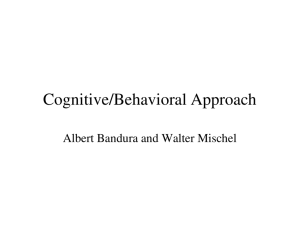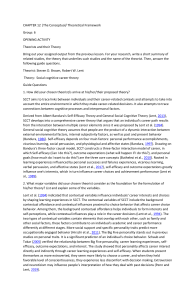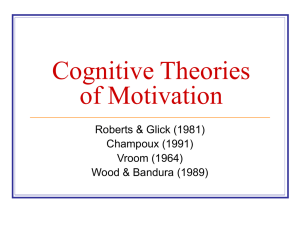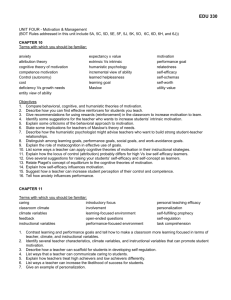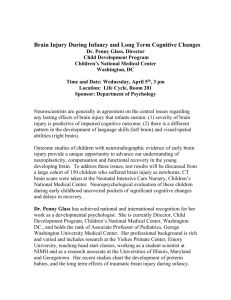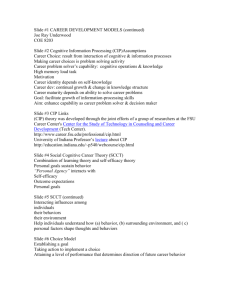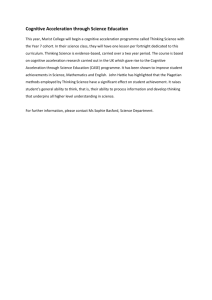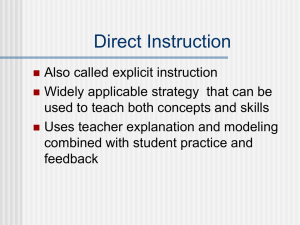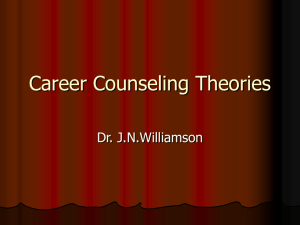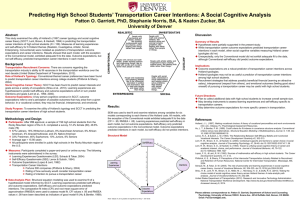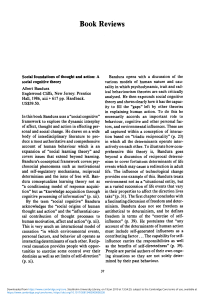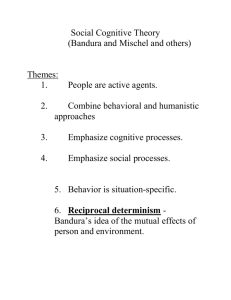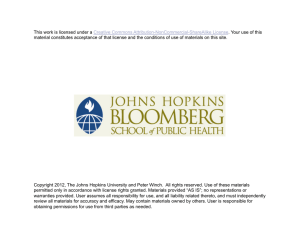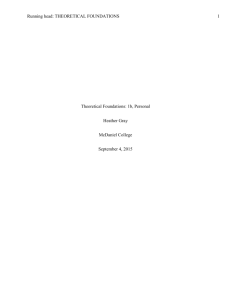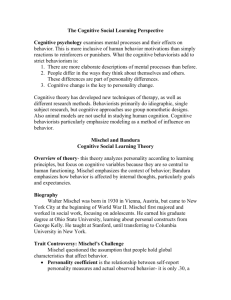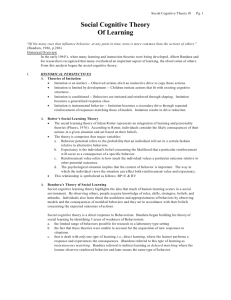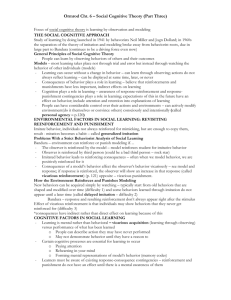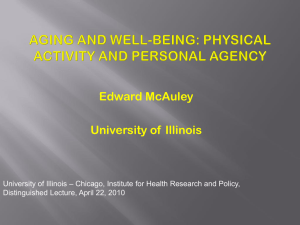Social Cognitive Career Theory
advertisement
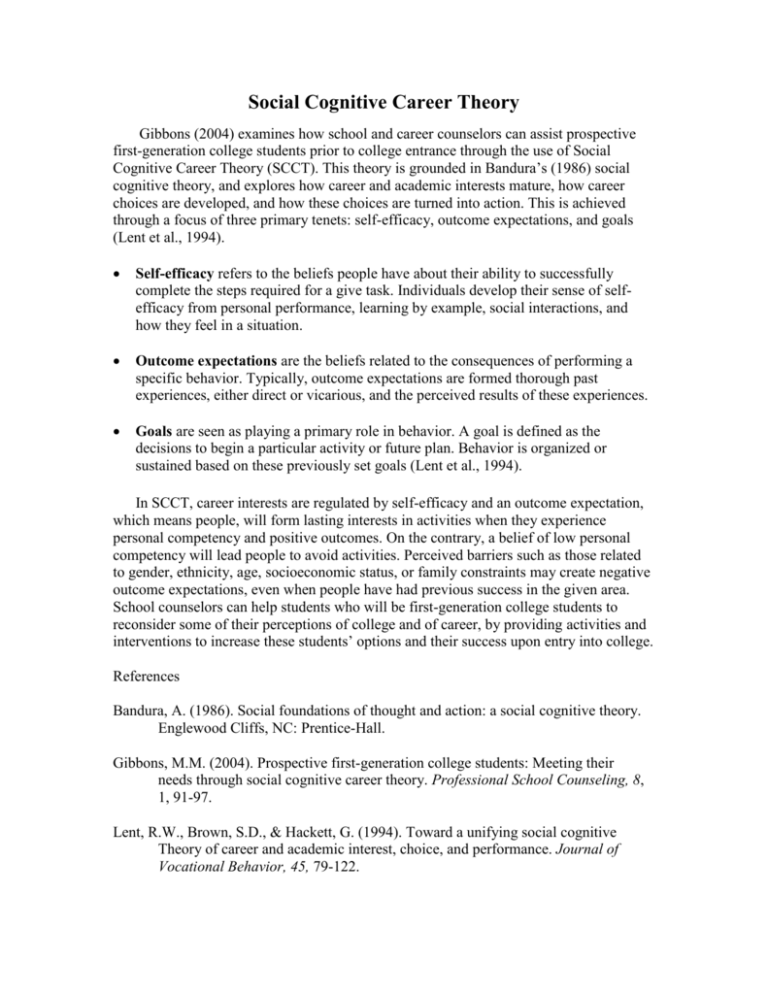
Social Cognitive Career Theory Gibbons (2004) examines how school and career counselors can assist prospective first-generation college students prior to college entrance through the use of Social Cognitive Career Theory (SCCT). This theory is grounded in Bandura’s (1986) social cognitive theory, and explores how career and academic interests mature, how career choices are developed, and how these choices are turned into action. This is achieved through a focus of three primary tenets: self-efficacy, outcome expectations, and goals (Lent et al., 1994). Self-efficacy refers to the beliefs people have about their ability to successfully complete the steps required for a give task. Individuals develop their sense of selfefficacy from personal performance, learning by example, social interactions, and how they feel in a situation. Outcome expectations are the beliefs related to the consequences of performing a specific behavior. Typically, outcome expectations are formed thorough past experiences, either direct or vicarious, and the perceived results of these experiences. Goals are seen as playing a primary role in behavior. A goal is defined as the decisions to begin a particular activity or future plan. Behavior is organized or sustained based on these previously set goals (Lent et al., 1994). In SCCT, career interests are regulated by self-efficacy and an outcome expectation, which means people, will form lasting interests in activities when they experience personal competency and positive outcomes. On the contrary, a belief of low personal competency will lead people to avoid activities. Perceived barriers such as those related to gender, ethnicity, age, socioeconomic status, or family constraints may create negative outcome expectations, even when people have had previous success in the given area. School counselors can help students who will be first-generation college students to reconsider some of their perceptions of college and of career, by providing activities and interventions to increase these students’ options and their success upon entry into college. References Bandura, A. (1986). Social foundations of thought and action: a social cognitive theory. Englewood Cliffs, NC: Prentice-Hall. Gibbons, M.M. (2004). Prospective first-generation college students: Meeting their needs through social cognitive career theory. Professional School Counseling, 8, 1, 91-97. Lent, R.W., Brown, S.D., & Hackett, G. (1994). Toward a unifying social cognitive Theory of career and academic interest, choice, and performance. Journal of Vocational Behavior, 45, 79-122.


